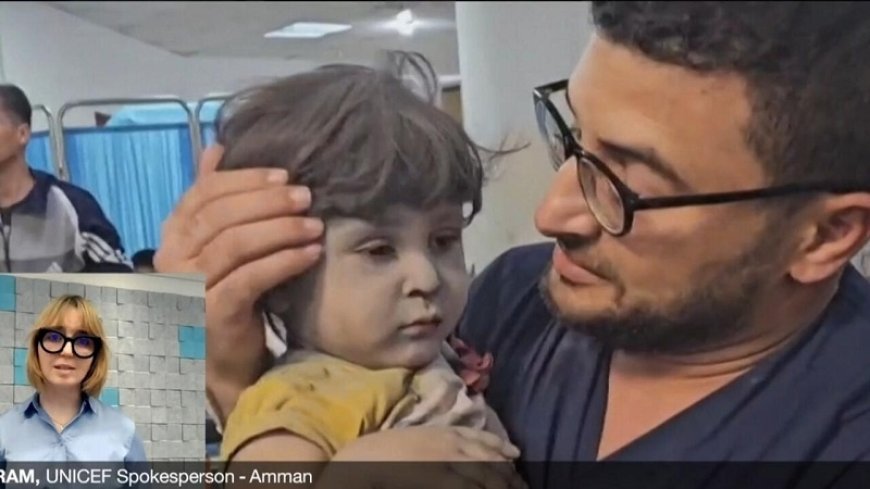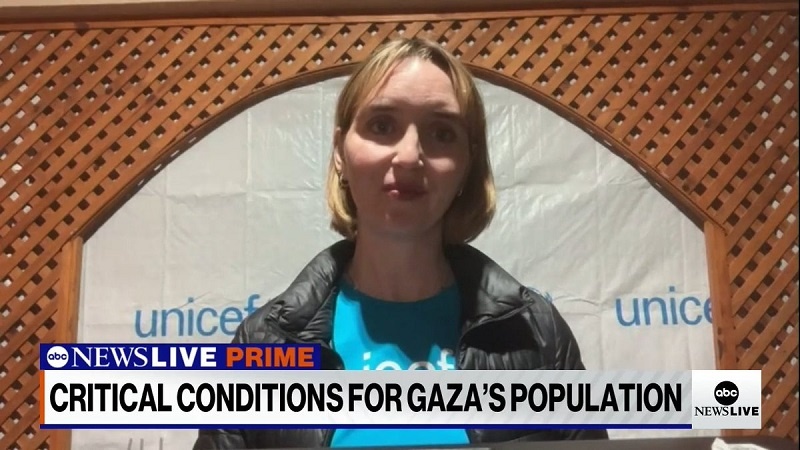UNICEF: Children of Gaza are in trouble for eating grass
The spokesperson of the United Nations Children's Organization, UNICEF, has said that he has witnessed with his own eyes a child in trouble after eating grass due to the hunger faced by hundreds of thousands of Palestinians in the Gaza Strip.

The spokesperson of the United Nations Children's Organization, UNICEF, has said that he has witnessed with his own eyes a child in trouble after eating grass due to the hunger faced by hundreds of thousands of Palestinians in the Gaza Strip.
Tess Ingram, has explained this while at the Al-Aqsa hospital in Deir al Balah in the middle of the Gaza Strip and showed the media a Palestinian child named Omar, who was brought to the hospital three days ago from the northern part of Gaza and is being treated against malnutrition.
According to Ms. Ingram, Omar's grandmother brought the child to Al-Aqsa Hospital after being separated from his parents, and he has spent two weeks eating only grass.
He added that the child is in great pain and is among the hundreds of children being treated for malnutrition in the hospital.
The UNICEF spokesperson added that the children are hungry and have not received the food and nutritional therapy they need and concluded by saying "we need a ceasefire right now."

At the same time, the United Nations Children's Fund has stated in a message posted on the X website that it has submitted its complaint to the relevant authorities of the Zionist administration of Israel and noted that it is sad to see that aid providers still continue to be exposed to danger while distributing aid humanly.
In its message, UNICEF has said that humanitarian aid will reach the needy only when the aid providers are protected in accordance with international humanitarian law.
And the United Nations Office for the Coordination of Emergency Aid, OCHA has said that, as the bombs continue to fall, the residents of Gaza are desperate to live, in the same way aid providers are desperate to distribute life-saving aid.../













































